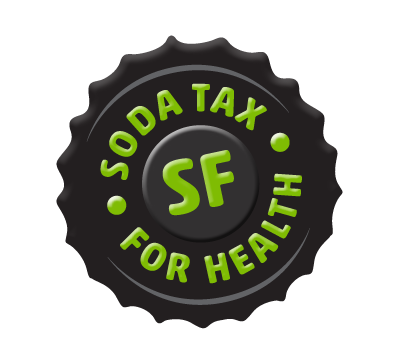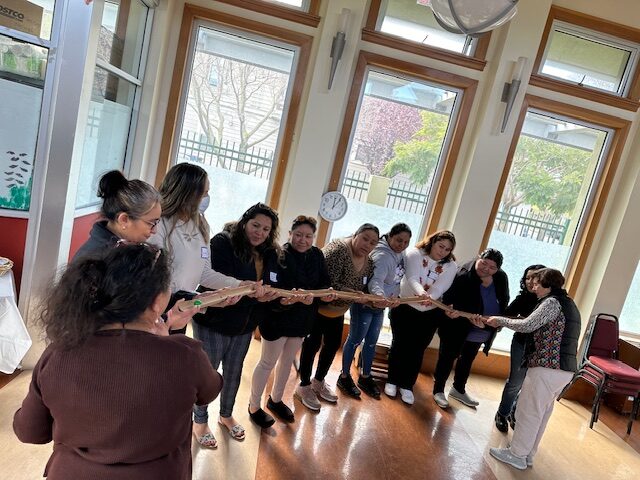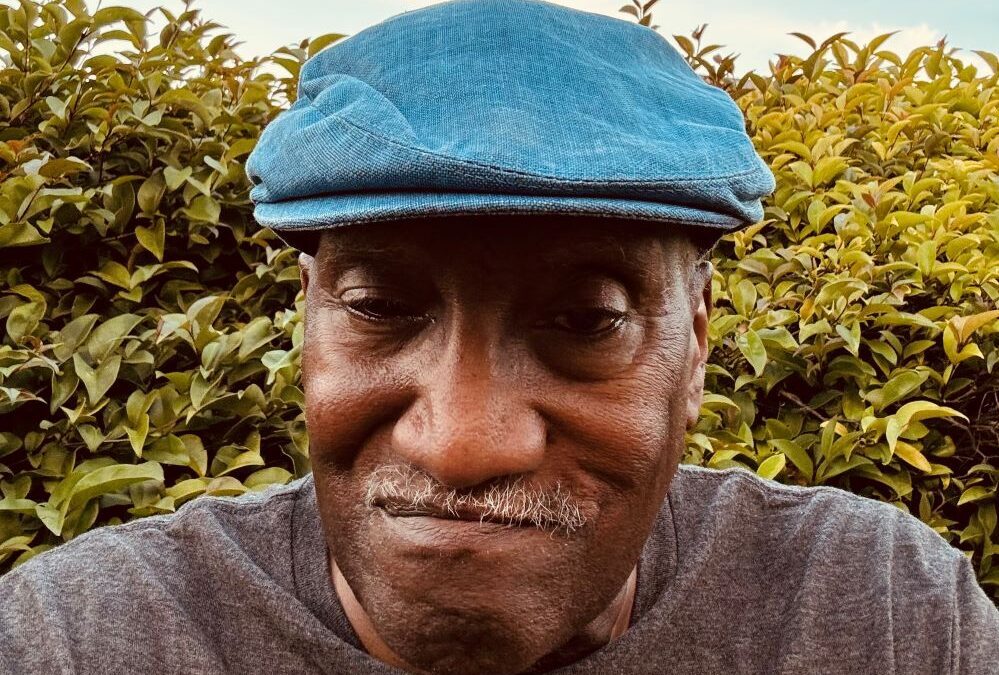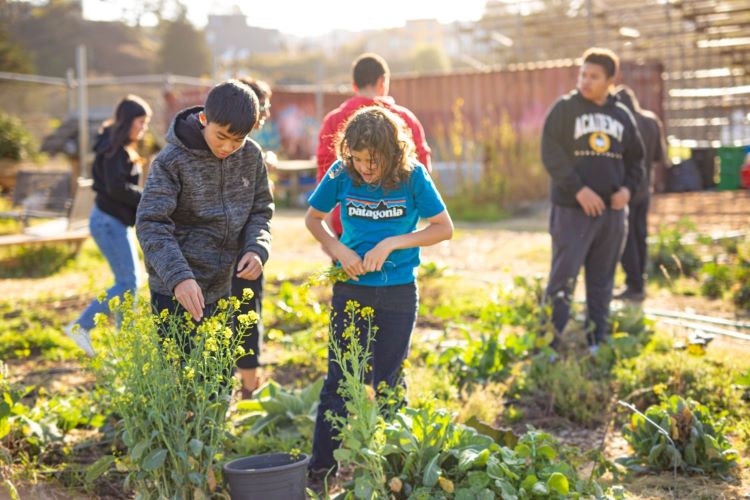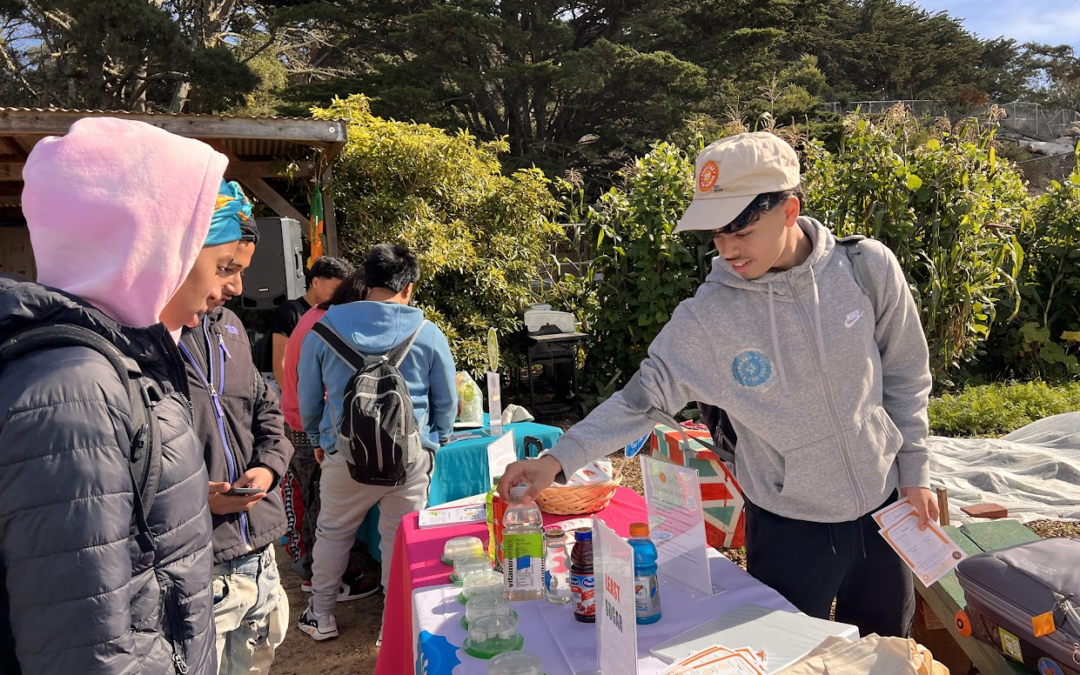By Vanessa Bohm, Family Wellness and Health Promotion Programs Director and Marco Guillen, Health Promotions Program Policy Coordinator of CARECEN SF
For decades, CARECEN SF has recognized the alarming rates of diet-sensitive chronic diseases, such as type 2 diabetes and early childhood cavities and how much the consumption of sugary drinks, like soda, has contributed to the development of these chronic diseases in the Latinx community. To address this issue, we have worked over many years to provide critical health education on healthy eating and active living in culturally relevant and engaging ways that are grounded in popular education and community empowerment. What we have come to know through this work is that health education that is both science and community informed has the power to positively impact the attitudes, behaviors and overall health outcomes of those we serve.
Building community leadership and capacity has been at the center of our health promotion approach. As a result, we have invested in developing promotoras, who themselves come from the communities we serve, speak the same languages, and share similar lived experiences that allow them to build trust with community members and share information in more relatable ways. Promotoras are trained to conduct health education workshops, outreach, and engagement with families on chronic disease prevention and other Latinx health priorities, including the science behind specific diseases, nutrition and the importance of exercise. This model has proven to be highly effective in helping to promote greater knowledge about our health and creating healthy behavior changes related to our diets, physical activity, mental health, and other issues related to our overall health and wellbeing. Promotoras have also been an integral part of our work to advocate for policies that strengthen health equity focused programming and services and create new opportunities to positively impact the health of marginalized communities like the Latinx immigrant community in San Francisco.
In 2020, CARECEN SF was awarded soda tax funding from the Department of Public Health to develop policy, systems, and environmental (PSE) changes that would positively impact health outcomes for populations disproportionately impacted by the high consumption of sugary drinks. Our ultimate goal with this funding was to develop and advocate for community-informed policies that will help reduce the consumption of sugary drinks and improve health outcomes in the Latinx community.
As part of this work we developed a community-informed assessment where we collected over 200 community surveys and conducted five focus groups and 15 interviews with local health equity leaders with the support of our promotora team. We gained valuable insights through this community assessment and identified three potential PSE areas of focus: Increasing access to healthy and culturally relevant foods at the food banks, decreasing the availability of sugary drinks in community spaces, and lastly, improving tap water confidence among Latinx community members.
In October 2023, we began holding monthly community meetings or “charlas comunitarias”—a virtual space where community members could learn about our PSE advocacy efforts, as well as provide insight and guidance. During these meetings, community members decided to prioritize increasing confidence in and consumption of San Francisco tap water as many community members expressed that they did not always feel safe drinking tap water because of fears of lead and other possible contamination.
Since then water confidence and access has been the focus of our work to create policy and systems change. We know that to reduce the high consumption of sugary drinks in our communities, community members need to feel like they have a healthy alternative to turn to and tap water is an important part of this equation. Knowing this, we continue to hold monthly community meetings to work with our community members to work on policies that they feel will help increase confidence in drinking tap water. Two policies we are currently working on include improving access to tap water testing and greater community involvement in the development of city-wide campaigns and messaging that will grow awareness about the quality of SF tap water.
An important part of this work has been building relationships with diverse stakeholders related to health and water access, including the San Francisco Public Utilities Commission (SFPUC), ShapeUp SF, and other partners who are also interested in positively impacting the health of those we serve and others. SFPUC has demonstrated through various discussions and meetings interest in and support for addressing the low confidence Latinx community members have in SF tap water. In particular, SFPUC’s water quality division staff has committed to exploring the possibility of developing a pilot program to make water testing of taps more accessible for our community members. Similarly, SFPUC’s communications division has been supportive of seeking ways our community members can help inform communications strategies that more effectively reach them as newly arrived Latinx immigrants, monolingual Spanish speakers who oftentimes are unfamiliar navigating local institutions, services, and resources. Likewise, building connections with coalitions like ShapeUp SF have been important for us as we seek to learn from and build on the work of many others who have been leading advocacy efforts around health equity and policy change for decades.
Additionally, we are in the process of training ten new community leaders as promotoras who will help support our water focused advocacy in the coming years. As part of this training, these promotoras are learning about popular education, sugar science, civic education, and advocacy strategies. We have no doubt that this new cohort of promotoras will play an important role in achieving our goal to increase the consumption of tap water, while also improving the health of the Latinx and all of San Francisco’s residents.
It’s been four years since the start of this project, and we are proud of everything we have accomplished. From the beginning, this project has been community-driven in every aspect. Similarly, we are excited about where this work is going and the change that is possible. Our vision is clear: A healthier San Francisco where everyone feels safe about their drinking water and in which water becomes the daily beverage of choice over soda and sugary drinks.
